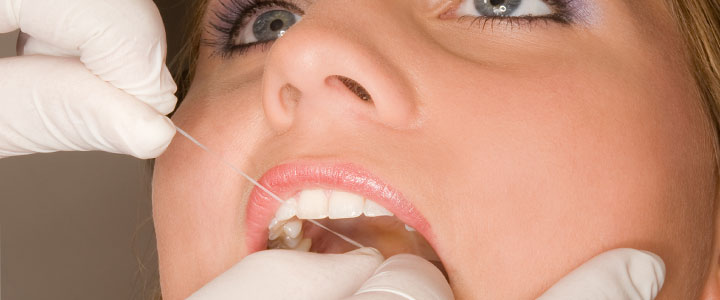Your smile and your overall health depend on simple dental care habits, such as
brushing and flossing. Oral health begins with clean teeth. Keeping the area clean
where your teeth meet your gums clean can prevent gum disease, while keeping your
tooth surfaces clean can help you stave off cavities and gum disease.

The purpose of oral hygiene is to prevent the buildup of plaque, the sticky film
of bacteria and food that forms on the teeth. Plaque adheres to the crevices and
fissures of the teeth and generates acids that, when not removed on a regular basis,
slowly eat away, or decay, the protective enamel surface of the teeth, causing holes
(cavities) to form.
Brushing and flossing removes plaque from teeth, and antiseptic mouthwashes kill
some of the bacteria that help form plaque. Fluoride, found in toothpaste, drinking
water, or dental treatments, also helps to protect teeth by binding with enamel
to make it stronger.
Maintaining good oral hygiene is one of the most important things you can do for
your teeth and gums. Healthy teeth not only enable you to look and feel good, they
make it possible to eat and speak properly.
In addition to maintaining a good home care routine, the best thing you can do is
to schedule regular dental checkups and professional cleanings
Contact your dentist if you notice any signs or symptoms that could suggest oral
health problems, such as:
- Red, tender or swollen gums
- Gums that bleed when you brush or floss
- Gums that begin pulling away from your teeth
- Loose permanent teeth
- Unusual sensitivity to hot and cold
- Persistent bad breath or an unusual taste in your mouth
- Painful chewing
Remember, early detection and treatment of problems with your gums, teeth and mouth
can help ensure a lifetime of good oral health.
If gums become infected with periodontal disease, harmful bacteria can actually
enter the bloodstream and make its way to other parts of the body. Practicing good
oral hygiene can reduce your chances of developing complications or illnesses from
a dental disease and could prevent the need for a costly gum disease treatment.